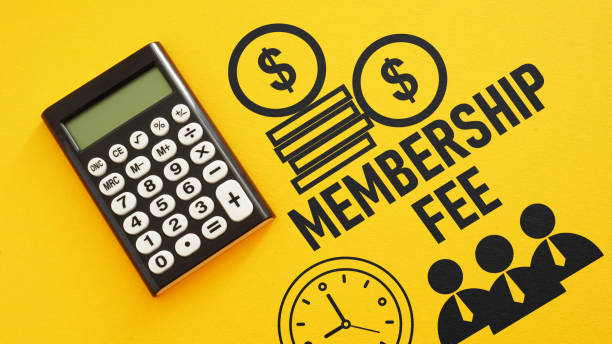What Are the HOA Fees and What Exactly Do They Cover?

If you’re thinking about buying a home in a community managed by a Homeowners Association, or HOA, one of the most important financial details you need to understand is the HOA fees. These fees can sometimes come as a surprise or cause confusion, especially for first-time buyers who may ask, what are the HOA fees really for? Many buyers hear about these fees but don’t fully grasp how they work or what they cover. This can lead to unexpected expenses down the line.
In this article, we’ll explore everything you need to know about HOA fees. We’ll start by explaining what HOA fees are, go through the typical items these fees cover (and what they don’t), why fees can vary so much, and how you can find out the exact fees for a property you’re interested in. By the end, you’ll feel more confident navigating HOA costs so you can make smarter real estate decisions.
What Are HOA Fees?
HOA fees are essentially payments made by homeowners within a community that is governed by a Homeowners Association. Think of the HOA as a group responsible for managing and maintaining the community’s shared spaces and amenities. To fund this work, every homeowner pays a fee, usually monthly, that goes into the HOA’s budget.
These fees cover everything from landscaping and maintenance of common areas to insurance and sometimes security services. The idea is to keep the neighborhood attractive, safe, and functional for all residents. Without these fees, who would take care of the pool, clean the sidewalks, or repair the clubhouse? The HOA fees ensure these shared responsibilities don’t fall unfairly on individual homeowners.
It’s important to note that the amount of the HOA fee varies widely depending on many factors, such as the size of the community, location, and what amenities are offered. Some HOAs may charge as little as $100 a month, while others can be several hundred dollars or more.

Typical Items Covered by HOA Fees
One of the most common questions buyers ask is, what exactly do HOA fees cover? While there’s some variation between communities, there are several typical expenses that HOA fees usually take care of:
-
Landscaping and Groundskeeping: This includes mowing lawns, trimming bushes, planting flowers, and keeping community green spaces neat and attractive.
-
Maintenance of Common Areas: Hallways, lobbies, stairwells, and shared driveways often need cleaning, repairs, and upkeep paid for by the HOA.
-
Recreational Amenities: Pools, tennis courts, fitness centers, playgrounds, and clubhouses all require maintenance and utilities, which are funded by HOA fees.
-
Security Measures: In gated communities, the fees might cover security personnel, surveillance cameras, or electronic gate maintenance.
-
Utilities for Shared Spaces: This can include water, electricity, trash collection, and sometimes gas for common areas.
-
Insurance: The HOA usually carries insurance on common property and shared structures, protecting the community from liability or damage costs.
-
Reserve Fund Contributions: A portion of the fees is often put into a reserve fund, which is saved for large, future repairs or emergencies, like repaving roads or replacing roofs on shared buildings.
-
Administrative Costs: This includes managing the HOA, paying staff or property managers, legal fees, and accounting services.
These services help maintain the overall quality, safety, and aesthetic of the neighborhood, factors that support your home’s value over time.
What HOA Fees Usually Don’t Cover
Understanding what HOA fees don’t cover is just as crucial as knowing what they do. This helps you budget better for your overall home expenses. Here’s a quick list of common costs that HOA fees generally don’t include:
-
Individual Home Repairs and Maintenance: You’re responsible for the upkeep inside your home, and often the exterior paint or landscaping immediately adjacent to your property.
-
Personal Utility Bills: Electricity, gas, water, cable, internet, and phone bills for your home are your responsibility.
-
Mortgage Payments and Property Taxes: HOA fees are separate from your mortgage payment and your local property tax bill.
-
Homeowners Insurance: While the HOA insures common areas and sometimes building exteriors, you need your own insurance policy for your individual unit or home interior.
-
Special Assessments: Occasionally, the HOA may levy extra fees called “special assessments” for unexpected repairs or large projects beyond the regular budget. These are one-time charges you’ll need to pay separately.

Why HOA Fees Can Vary Widely
If you’ve looked at properties in different neighborhoods, you might have noticed HOA fees can vary dramatically. There are many reasons for this variance, and understanding them can help you evaluate whether the fees are reasonable for what you get in return.
-
Size of the Community: Larger developments tend to have more infrastructure to maintain, such as more roads, lighting, or parks, which can increase fees.
-
Amenities Offered: A community with just basic landscaping will charge less than one with swimming pools, fitness centers, playgrounds, and gated access.
-
Location: HOA fees in urban centers or resort areas tend to be higher due to increased maintenance costs and more services.
-
Reserve Fund Needs: If a community is older or facing upcoming major repairs, fees may be higher to build up the reserve fund.
-
Management Style: Professional property management companies may charge higher fees but often provide more reliable and efficient services.
-
Community Rules and Regulations: Some HOAs enforce strict standards requiring more frequent maintenance or upgrades, which can drive up costs.
Because of these factors, it’s not unusual to see HOA fees from under $100 to well over $1,000 monthly depending on where and what you’re buying.
How to Find Out the HOA Fees for a Property
Before buying a property in an HOA community, it’s essential to know exactly how much the HOA fees are and what they include. Here are some tips on finding that information:
-
Ask the Seller or Real Estate Agent: They should be able to provide details about HOA fees and the association’s documents.
-
Request HOA Documents: These include the budget, bylaws, rules, and financial statements, which outline fee amounts and what they cover.
-
Contact the HOA Directly: The HOA management or board can provide the most current information about fees, rules, and any upcoming special assessments.
-
Check Property Listings: Often, the HOA fee is listed in online real estate listings, but you should verify with official documents.
-
Review the Resale Package: When you make an offer, the seller or HOA typically provides a resale disclosure package with detailed fee info.
Getting this information upfront helps you avoid surprises and lets you compare properties more accurately.

Conclusion
Understanding what are the HOA fees and what they cover is a crucial part of buying a home in a managed community. These fees help keep neighborhoods clean, safe, and full of amenities that add comfort and value to your lifestyle. However, they also represent a recurring expense that you need to plan for carefully.
If you’re ready to learn more about real estate investing, managing property costs like HOA fees, and making smart financial decisions, Dwanderful is a fantastic resource. Dwanderful is run by Dwan, a real estate investor and podcast host who offers practical advice and education for buyers and investors of all levels.
Dwan offers a free book called Real Estate Lingo, which breaks down complex real estate terms in simple, easy-to-understand language, perfect for beginners. For those ready to dive deeper, there’s a paid guide, Five Pillars of Real Estate Investing, which lays out essential strategies for building wealth through real estate.
Plus, don’t miss the interactive quiz game on Dwanderful where you can discover how to generate six figures in the next six months — whether you’re buying your first property or your next one. The quiz takes less than a minute but can offer surprising insights to jumpstart your real estate journey.
Frequently Asked Questions
What Happens If Someone Doesn’t Pay Their HOA Fees?
If a homeowner falls behind on HOA payments, the association can impose late fees and suspend privileges like pool or gym access. In some cases, the HOA can place a lien on the property, which may eventually lead to foreclosure if unpaid.
Are HOA Fees Included in Mortgage Payments?
It depends. Sometimes lenders include HOA fees in your monthly mortgage payment by collecting them through an escrow account. However, in many cases, homeowners pay HOA fees separately.
What Are Special Assessment Fees?
Special assessments are extra charges that an HOA can levy on homeowners to cover unexpected costs or major projects that the regular budget doesn’t cover. These can be for things like repairing damage after a storm or upgrading aging infrastructure.


